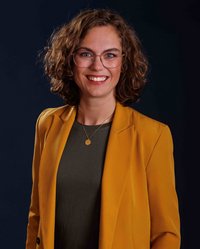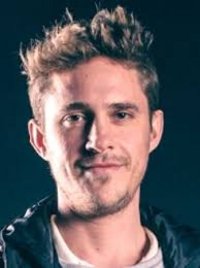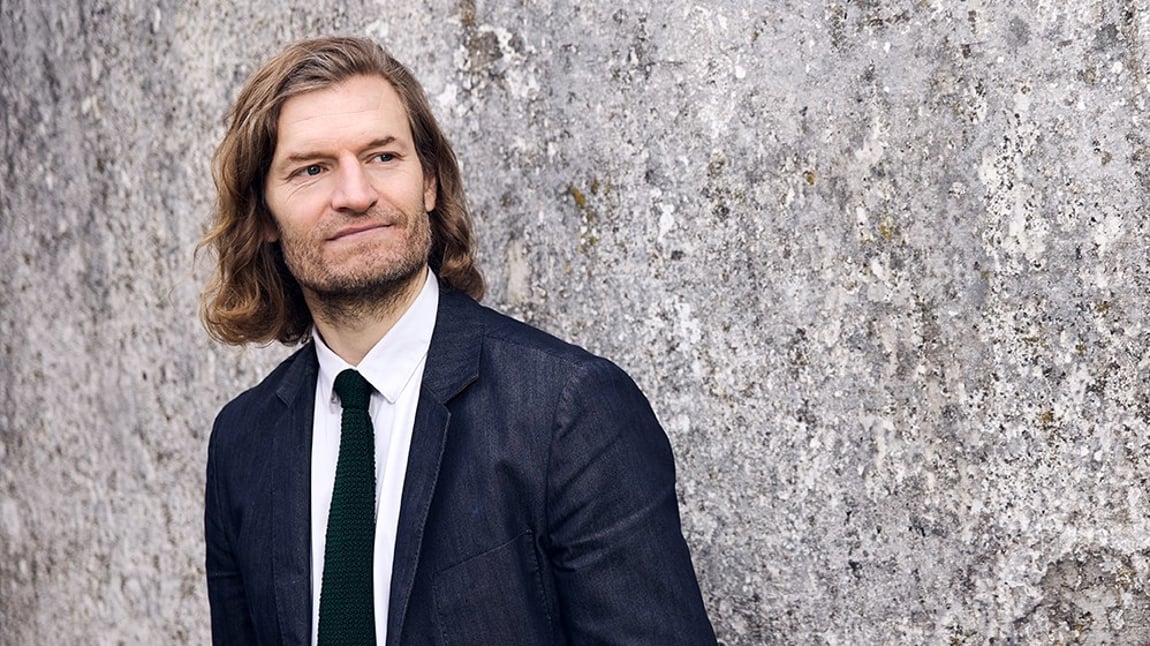QUBITS Seminars is a lecture series hosted by Quantum Campus Aarhus (QCA), bringing together researchers and students with an interest in quantum science and technology. The series features talks by leading experts from Aarhus University and beyond, covering a wide range of topics, including quantum computing, quantum materials, quantum information, and the role of quantum technologies in society from the perspective of the social sciences and humanities.
The seminars provide a platform for knowledge exchange, discussion, and networking within the quantum community. Each talk is designed to be accessible to a broader scientific audience while offering valuable insights into cutting-edge research and developments.
Practical details:
The seminar schedule is continuously updated. Details on upcoming talks can be found below.
All are welcome to attend, and drinks and snacks are served after each talk.
To receive announcements about future QUBITS Seminars, you can sign up for our mailing list.

The current ‘second quantum revolution’ promises dramatic technological changes for society. While there is clearly an international push to quantum research and development, it also comes with societal responsibility. Now is the time to involve society. We live in a time of science skepticism. We know from climate debates and vaccine discussions that our current society does not just ‘believe’ in science. This is a very different cultural atmosphere than the times in which the classical computer entered society and people set foot on the moon. Besides that, quantum is often seen as spooky, too difficult or irrelevant to many people. We think that research on the impact of quantum technology on society is highly relevant. Understanding the concerns, questions and acceptance within societal groups will help to increase the societal relevance of quantum technology, as we will know in an early stage what specific groups in society need and expect from this new technology.
The ambition of my research group Quantum and Society at Leiden University is that social engagement, both of the quantum community towards society, and of society towards quantum technology, should be increased and improved in a well-considered way. Although there are quantum outreach activities, they are often not evaluated. Studies on the impact of communication by experts and media, the attitudes of social groups, empirical research on interventions such as popular science events and dialogues between scientists and society will contribute to improving and advising on the societal implementation of the promising quantum technology.
In this talk I will discuss the urge for and implications of research on quantum and society from a science communication perspective. I will discuss some of our research findings of our research group, such as the result of a framing-study on TEDx talks and news articles about quantum, findings on metaphors around quantum and our findings of a quantum exhibition at a large music festival in The Netherlands.
Julia Cramer is an Assistant Professor at Leiden University, where she leads research at the intersection of quantum science and science communication. With a background in quantum physics, her work explores how to effectively communicate complex quantum concepts to diverse audiences, including students, policymakers, and the general public.
Her research focuses on public perception, education, and engagement with quantum technologies, aiming to bridge the gap between cutting-edge quantum research and society. She is particularly interested in how people understand and interact with quantum information and what this means for the future of quantum technology adoption.
We are honored to welcome Professor Karen Barad as a speaker in the QUBITS seminar series. Professor Barad is a distinguished theoretical physicist and philosopher, best known for their work in quantum mechanics, feminist theory, and science studies. Their influential concept of agential realism explores the fundamental entanglement of matter and meaning, offering deep insights into the nature of quantum phenomena and their broader philosophical implications.
Professor Barad is visiting Aarhus University as a guest professor at the Aarhus Institute of Advanced Studies (AIAS).
Achieving a provable exponential quantum speedup for an important machine learning task has been a central research goal since the seminal HHL quantum algorithm for solving linear systems and the subsequent quantum recommender systems algorithm by Kerenidis and Prakash. These algorithms were initially believed to be strong candidates for exponential speedups, but a lower bound ruling out similar classical improvements remained absent. In breakthrough work by Tang, it was demonstrated that this lack of progress in classical lower bounds was for good reasons. Concretely, she provided a classical counterpart to the quantum recommender systems algorithm, reducing the quantum advantage to a mere polynomial. Her approach is quite general and was named quantum-inspired classical algorithms. Since then, almost all the initially exponential quantum machine learning speedups have been reduced to polynomial via new quantum-inspired classical algorithms. From the current state of affairs, it remains unclear whether exponential quantum speedups can be achieved for any natural machine learning task.
In this talk, Kasper Green Larsen presents the first provable exponential separation between quantum and quantum-inspired classical algorithms. The separation is shown for the basic problem of solving a linear system when the input matrix is well-conditioned and has sparse rows and columns.
This is joint work with Allan Grønlund, Kvantify.
Kasper Green Larsen is a Professor in Computer Science at Aarhus University, specializing in theoretical computer science, algorithms, and computational complexity. His research focuses on understanding the fundamental limits of computation, including quantum computing and classical algorithmic lower bounds. He has made significant contributions to data structures, communication complexity, and quantum-inspired classical algorithms.
Larsen has received multiple awards for his work, including the Presburger Award for outstanding contributions to theoretical computer science. His research aims to bridge the gap between quantum and classical computing, exploring when and how quantum algorithms can achieve true computational advantages.

The majority of envisioned quantum technologies require robust properties, so that noise and disorder need not be suppressed to impractical levels. Thus, there is considerable interest in materials with quantum states that are topologically protected against disorder.
Topological quantum chemistry shows how the symmetry of local orbitals at crystallographic sites controls the topology of a material's band structure, offering a clear recipe for designing new quantum materials.
To realize these designs in practice, we need chemical platforms that can be easily tuned or functionalized. In this talk, I will show that a large family of "graphene-like" Metal-Organic Frameworks (MOFs) meets this requirement perfectly. Owing to their modular, Lego-like make-up, these frameworks allow direct control over spin entanglement across longer distances by judicious choice of metal and ligand building blocks. They also contain built-in pore space-like tiny scaffolds-for embedding additional quantum functionalities and interfaces, making them highly versatile for next-generation quantum technologies.

Professor Ivan Damgård will discuss the impact of quantum computing on cryptography, particularly how the advent of large-scale quantum computers could disrupt current cryptographic systems. He will explore different approaches to address this challenge, including solutions that leverage quantum communication and others that do not, comparing their advantages and practical applications. This talk is especially relevant for those interested in the future of secure communication and data privacy.
Professor Ivan Damgård is a leading researcher in cryptography and computer security. His work has had a profound impact on the development of secure communication protocols and cryptographic systems. He is best known for his contributions to multiparty computation, cryptographic hashing, and zero-knowledge proofs, which have become foundational tools in modern cryptography. His research continues to shape the future of secure data sharing and privacy-preserving technologies, with applications in both the public and private sectors.
Klaus Mølmer will offer a brief, non-technical introduction to the quantum mechanical revolution a century ago and explain why the physics community was and always will be divided over the interpretation of its two unique features: the superposition principle and the measurement postulate. We experience now a second quantum revolution with dreams of technologies that apply exactly these foundational elements and strange properties of quantum mechanics. He will illustrate this with examples from his own research on quantum measurements and sensors that attain quantum advantages in physical measurements. Quantum computing, communication and sensing are wonderful goals for research: they challenge our imagination, they ask completely new questions from theory and they deepen our understanding in many ways. But, Klaus find it scaring to hear decision makers forecast and build policies on near term threats and benefits with little or no support in actual achievements. Hence, he will conclude with my "stuck-in-the-elevator talk" to decision makers on the challenges, the limitations, the easy counter measures to threats and the, ignored and sometimes stronger, non-quantum alternatives.
Professor Klaus Mølmer has conducted groundbreaking research in quantum physics and quantum technology. His work spans the development of theoretical models for quantum systems and their application in technologies such as quantum computing and quantum communication. His research has been crucial in advancing the understanding of light-matter interactions and quantum information processing.
The usefulness of quantum computing is often considered well-understood from a theoretical point of view. Textbooks will tell you a lot about certain tasks that a quantum computer may be better at than its classical counterpart. Finding a good 'use case for a quantum computer is, however, not that simple. In this talk, I will give some examples of 'classical' quantum algorithms, and discuss the current status of their usefulness. I will then try to convey my take on promising near- and long-term use cases, and give some examples of recent work in both theoretical and practical quantum computing.
Professor Nikolaj Zinner is a prominent researcher in quantum technology and theoretical physics. His work focuses on quantum many-body systems, quantum simulations, and quantum computing. As a co-founder of the quantum startup Kvantify, he is actively involved in translating cutting-edge quantum research into real-world applications. His research contributes to the development of quantum algorithms and quantum simulations, with potential transformative impacts on industries such as drug discovery, logistics, and material science."
